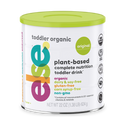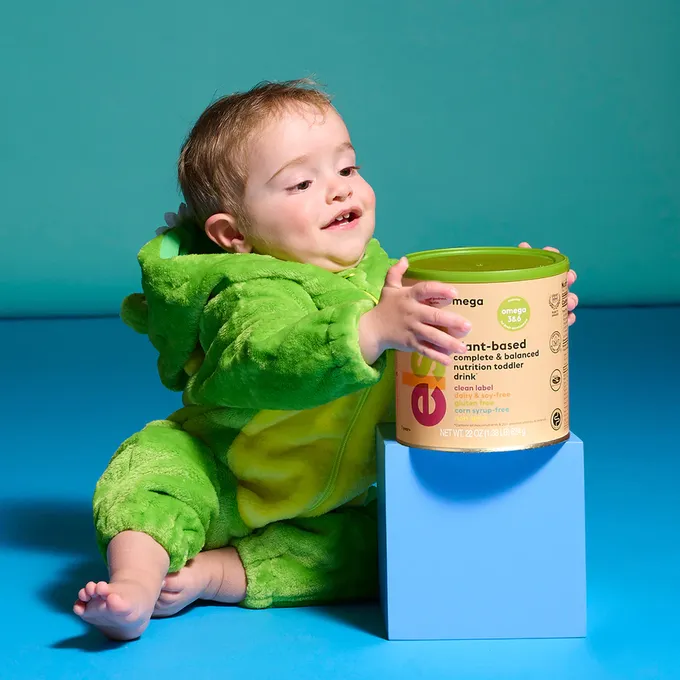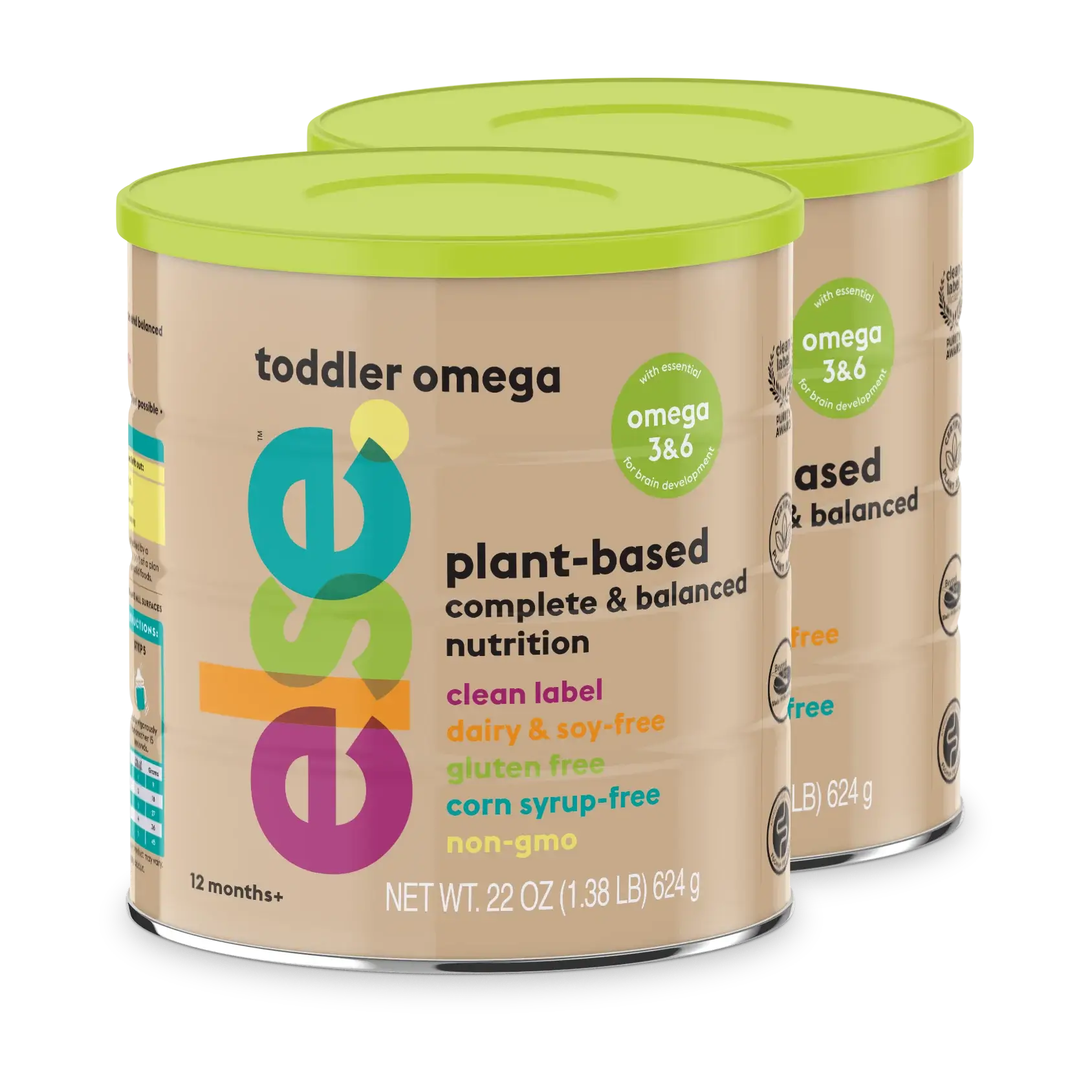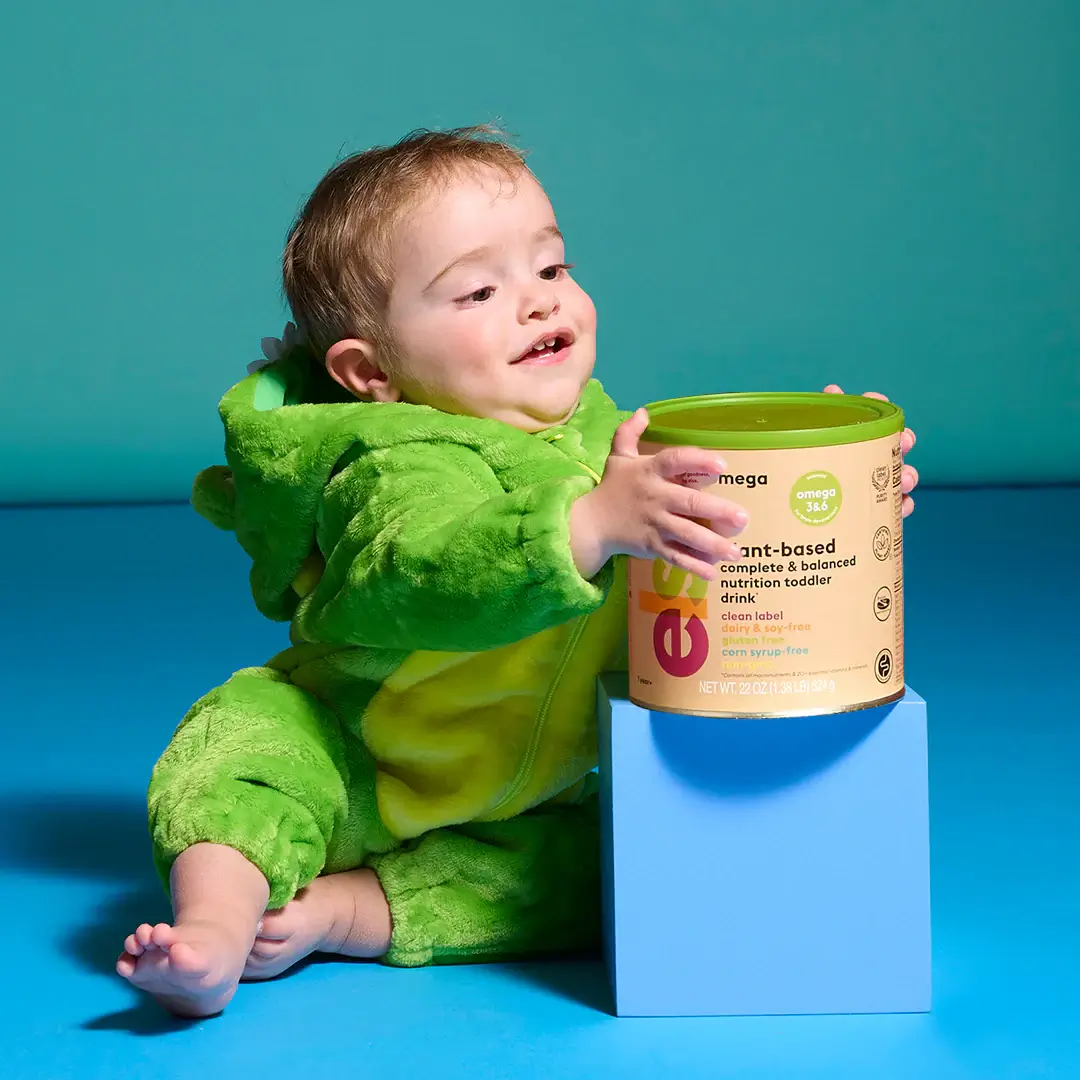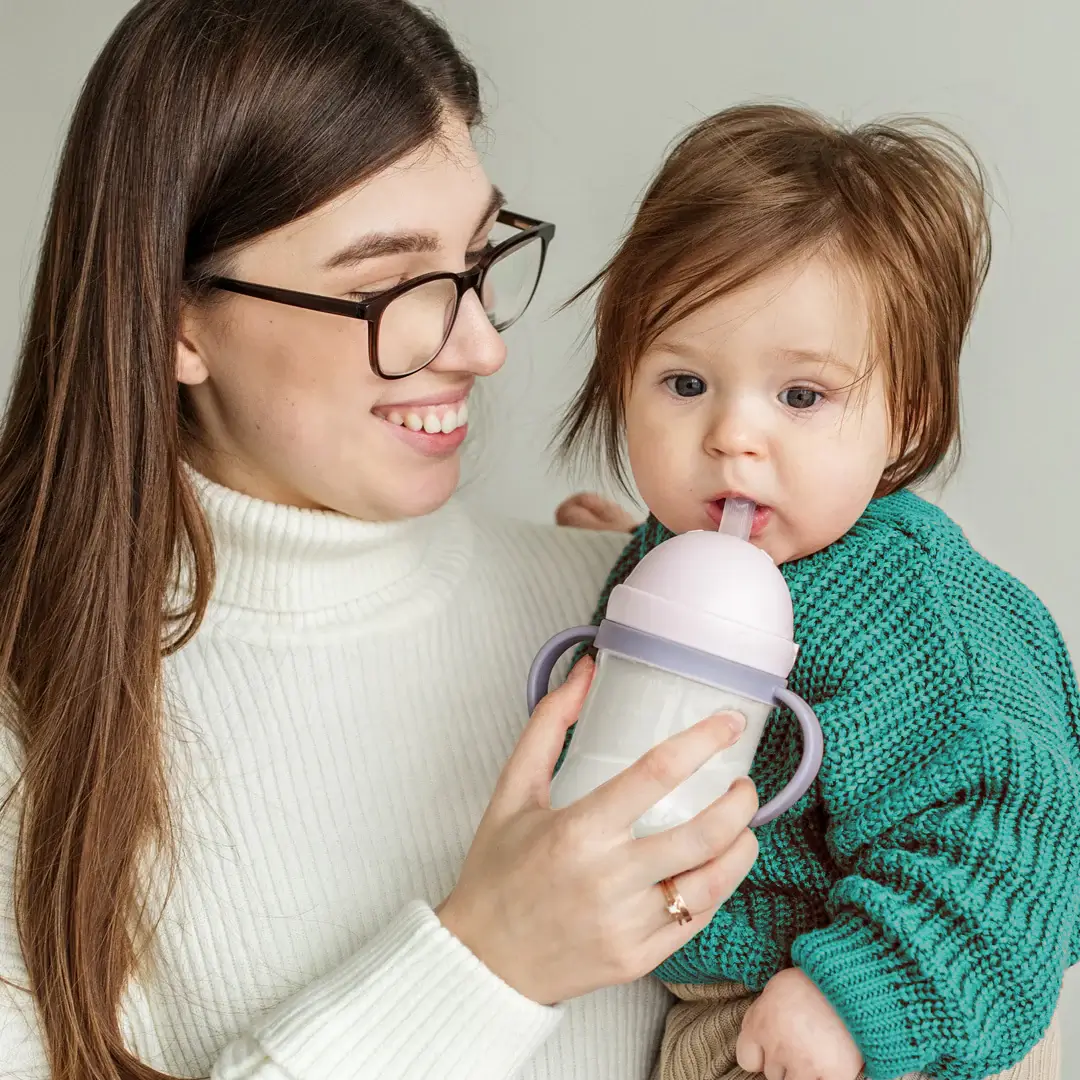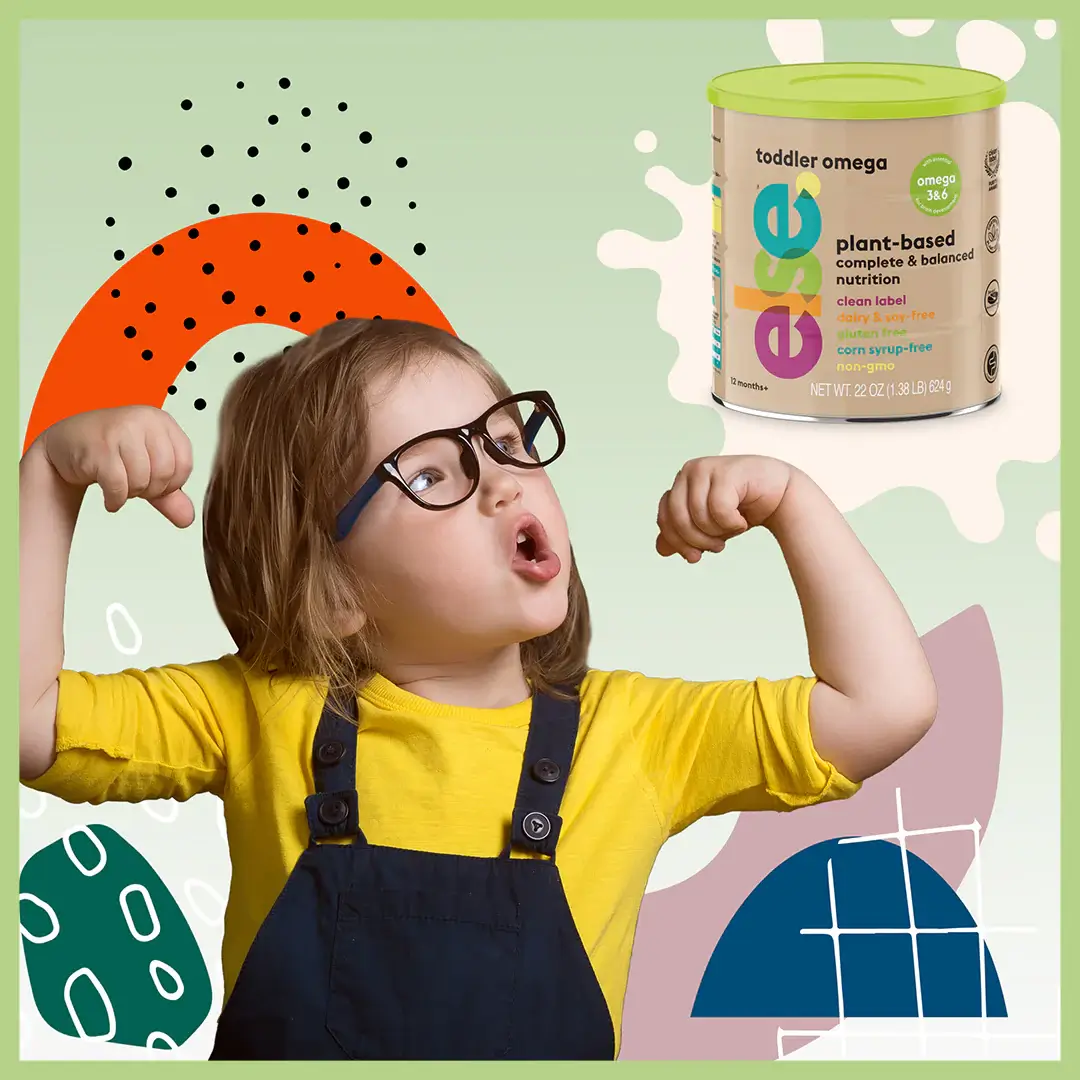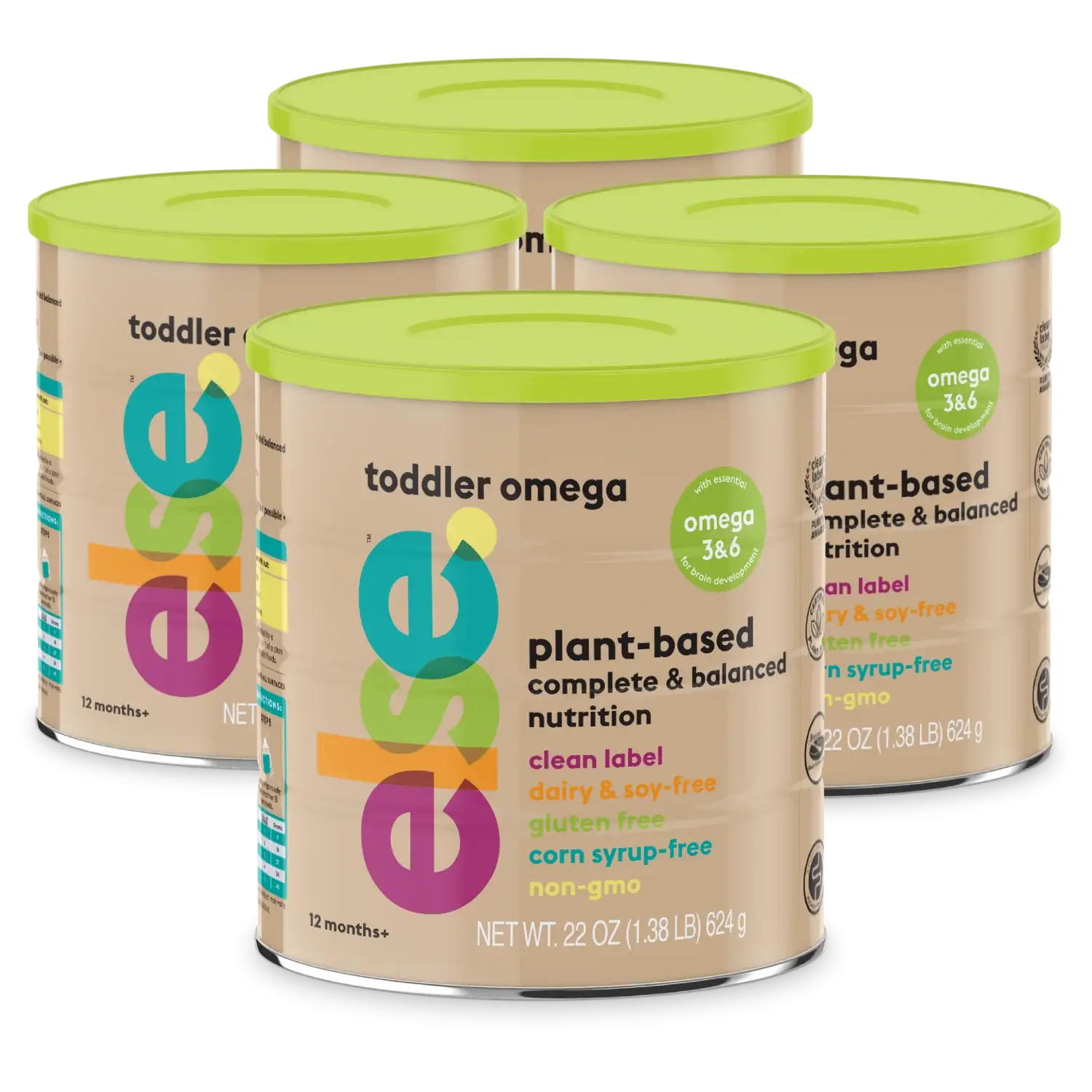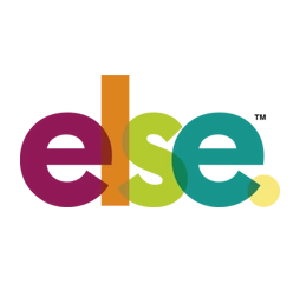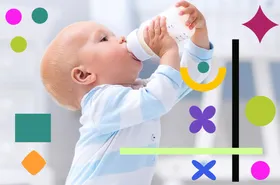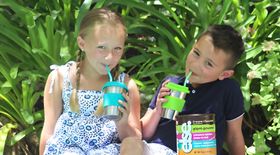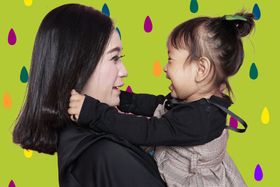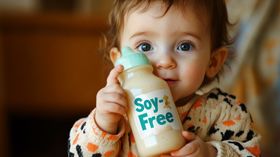Why Plant-Based Toddler Nutrition Is So Healthy
Considering plant-based toddler nutriton? Learn how incorporating more plant-based foods into your child's diet can promote health and well-being.
Updated May 16, 2024

Plant-based diets have existed for centuries but have recently seen explosive growth in mainstream culture. Lucky for vegetarians, vegans, flexitarians, and those who like to be ‘label-less’—there is a lot more plant-based food variety than ever before.
Long gone are the days of plant-based foods being isolated to local health food stores; a quick trip to bigger box grocery stores and you will find countless plant-based foods in the frozen aisle, dairy, and meat sections (and yes, even in the jerky aisle). Luckily for families who have or are choosing to adopt more plant-based nutrition for their children, there are more food options that help ensure appropriate growth during the crucial years of development.
Why Go Plant-Based?
Some families choose to go plant-based for ethical, environmental, and sustainability reasons. Others choose plant-based diets for suspected health benefits. Leading doctors endorse plant-based diets as a way to combat heart disease, diabetes, and obesity.
Generally, plant-based diets are higher in fiber, unsaturated fats, vitamins, anti-inflammatory antioxidants, and phytonutrients. Others opt to choose more plant-based options, specifically plant-based milk, due to either documented or suspected allergies or intolerances.
Choosing foods from plants or adopting a completely vegan diet can lower the exposure to foods derived from animals that may have been treated with antibiotics or hormones.
While there has been no direct negative consequence found as a result of antibiotics or hormone use in animals, there has not been a lot of research on its safety either. This leaves many, parents included, who want to minimize the potential indirect exposure of animal antibiotics and hormones to themselves and their little ones during their crucial years of development. Many parents, because of that reason, decide to supplement their children with organic and plant-based formulas, like Else Nutrition. Else provides a delicious and convenient way to ensure toddlers get the nourishment they need, made from wholesome ingredients.
Is Plant-Based Nutrition Safe for Toddlers/Kids?
As a Registered Dietitian specializing in pediatrics, ensuring appropriate physical and cognitive development in children is my main priority. And, I know this is a priority shared with most pediatric healthcare providers.
Generally, children should be on the least restrictive diets as tolerated to make sure they are getting all of their needed nutrients to grow. This is why some question the safety of plant-based diets for children because of the potential nutritional deficiencies, particularly early in life, that may have consequences on growth and cognitive development.
But let’s jump to what the actual experts, including the Academy of Nutrition and Dietetics (AND) and the American Academy of Pediatrics (AAP) say: a well-planned vegetarian diet can support adequate nutrition in growing children. And, many studies back this up.
» Discover the best toddler formulas in 2026
What Parents Should Consider With Plant-Based Diet For Kids
A balanced, plant-based diet is safe in children. But, balance is the key.
The more varied the diet, the more essential vitamins and minerals children will get. What you want to try to avoid is a plant-based diet exclusive to white pasta and bread.
Kids on a more rigid, vegetarian or vegan diet should be closely monitored to ensure the needed nutrients are being met to support proper growth. In particular, we need them to get enough total calories, fat, protein, calcium, vitamin D, iron, B12, zinc, and omega 3, which are not as abundant in plant-based foods.
Choosing nutritionally dense and solid food can help with this—including healthy fats such as nut butter, peanut butter, olive oil, and avocados into their diets, along with a variety of quality plant-based proteins, like legumes, nuts, whole grains (yes, whole grains have more protein), quinoa and seeds, and supplementing their diet with a calcium and vitamin D fortified formula. If you want to boost your toddler's omega-3 intake effortlessly, Else Nutrition's Toddler Omega Plant-Based Nutrition is a great choice. It is made with plant-based ingredients, our formula is rich in omega-3 fatty acids, essential for brain and eye development.
» Find out if protein shakes are good for kids
Nutritional Considerations for Babies and Toddlers on Plant-Based Diets
For babies and toddlers, there are some extra considerations.
Full-term, breastfed babies around 6 months of age require a dietary source of iron when they’ve depleted their natural iron stores from birth.
Plant-based breastfed babies will need either iron-fortified cereals or a supplement since it is otherwise challenging to get the needed iron from whole plant-based foods in the beginning.
And, for babies and toddlers, the high fiber content of plant-based food is an added benefit. Many children have low fiber intakes, which can have consequences on their gut microbiome (and pooping!); plant-based foods are high in fiber, so they can help combat common toddler constipation. But, on that same note, a high-fiber diet can take up too much space in small bellies, making it a bit harder to meet their calorie needs, which is another reason why offering a variety of nutritionally dense foods full of healthy fats and protein is key.
When it comes to toddlers, even the more adventurous eaters go through developmentally normal phases of food jags, food refusals, and fear of new foods. These phases can put toddlers on plant-based diets at more of a risk for nutritional deficiencies.
So, for children not eating a balanced diet for any of the multiple reasons listed above, they will need to supplement these needed nutrients that are missing from their diets to create healthy eating habits.
» Learn more about protein needs of infants and toddlers
How Else Can Help
Else Plant-based Toddler Nutrition Drink is a thoughtfully-designed, plant-based nutrition drink that offers healthy fat, plant protein, and many key nutrients, including calcium, vitamin D, B12, zinc among many others.
The dairy-free, soy-free nutritional drink is a blend of quality non-GMO ingredients—whole almond paste, buckwheat, and tapioca, with an overall low sugar content.
The combination of buckwheat and almonds makes the formula a complete protein, providing all of the essential amino acids (meaning the ones the body cannot make) to promote growth, making Else a balanced, fortified, all-in-one nutrition solution for many children who are on plant-based diets, or for those looking to complement their existing diet.




